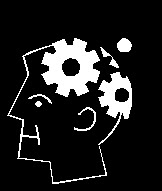Neuroscience and Ethics
 The latest issue of The American Journal of Bioethics has an interesting in-focus piece entitled "Neuroscience and Ethics: Intersections" by Antonio Damasio. You can download the article for free here. Here is a small sample:
The latest issue of The American Journal of Bioethics has an interesting in-focus piece entitled "Neuroscience and Ethics: Intersections" by Antonio Damasio. You can download the article for free here. Here is a small sample:The words neuroscience and ethics, placed together in the same sentence, conjure up two different ideas. One idea has to do with the fact that modern neuroscience has not only opened the way for new treatments of brain disease but also made possible a variety of unexpected applications of neuroscientific progress at the level of the individual and the culture at large. The goal of treating brain diseases is clearly laudable, provided it follows time-honored ethical medical practices, but it is legitimate to wonder about some of those other applications, debate them, and establish the ethical framework for the related practices. This is an important endeavor and it is currently underway in the new discipline of neuroethics.
The other idea evoked by combining the words neuroscience and ethics has to do with the possibility of using new scientific facts to help us understand the neural underpinnings of moral behavior. While these two ideas are different and are cultivated by distinct experts, it is apparent that they are related (Roskies 2002). The ethical questions we ask and the just guidelines we hope to formulate depend on the boundaries of what constitutes ethical behavior, and the setting of those boundaries, may come to be influenced by new knowledge regarding how the brain operates in health and disease. The comments in this essay focus on the second idea.
Cheers,
Colin


<< Home